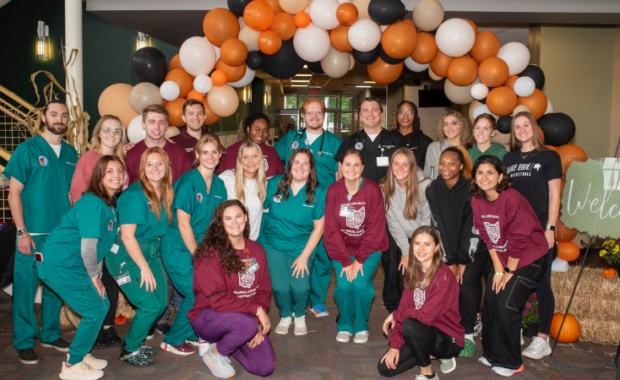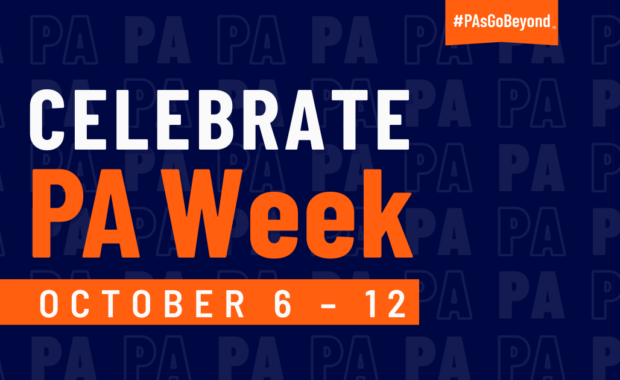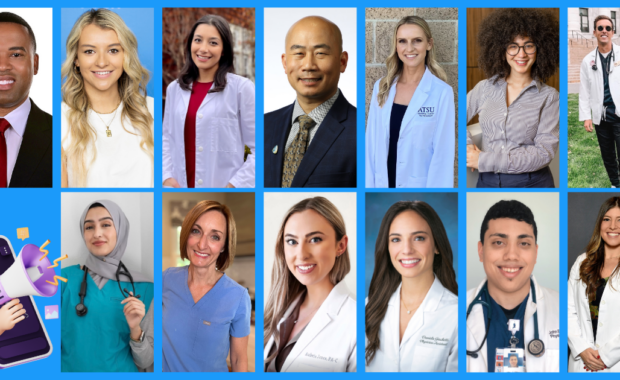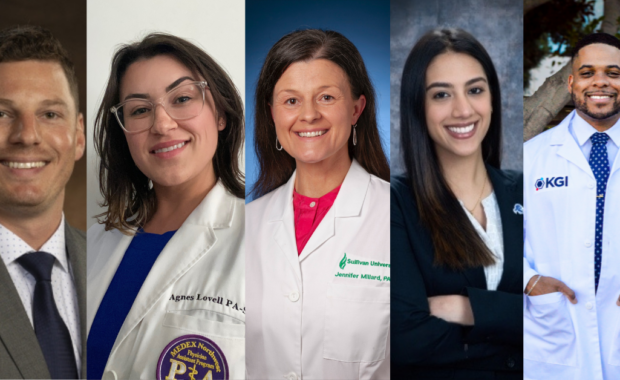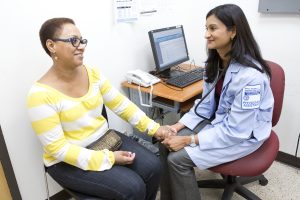
PA leans in, embraces challenges, and expands care
By Dave Andrews
Watching a loved one suffer from health issues is distressing. Knowing that their provider is not giving them the level of care they deserve can be heartbreaking.
PA Ratna Kanumury always knew she would have a career in medicine so she could provide others the kind of care that her mom did not receive. Growing up, Kanumury saw her mother struggle with poor health, often feeling as though her primary care physician was not truly listening.
“He was a great physician, but he never tailored her care to her particular health needs,” says PA Kanumury, who became a PA almost 20 years ago so she could provide others the kind of care that her mom did not receive. “I feel that a team of providers would have better addressed my mom’s condition, and that concept is what inspired me to become a physician assistant (PA) — to be part of a team.”
Experience has taught Kanumury that having more than one pair of eyes on a patient can be tremendously beneficial. As director of PA services for the Cook County Health and Hospitals System (CCHHS) in Illinois, she serves a dual role splitting her time between administrative duties and treating patients at Woodlawn Health Center, a safety net public health clinic on Chicago’s South Side where many residents live in deep poverty.
A deep commitment
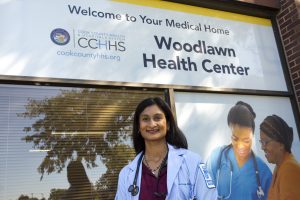
PA Kanumury is passionate about medicine — and her patients. “At the clinic, we focus on providing primary and preventative services to the residents of Cook County. Our patients struggle with multiple social disparities, which contribute to their health outcomes. I work at one of the 16 clinics in CCHHS’ ambulatory and community health network, which are now nationally recognized as patient-centered medical homes. So it’s a beautiful opportunity to work within a team to improve our community’s health outcomes.”
She is always looking for ways to improve access to care and provider utilization. This has earned her a high level of respect from CCHHS department chairs, medical directors and other colleagues with whom she works.
Being in the clinic several times a week enables her to apply her personal experiences from the clinic to her responsibilities providing oversight to the PAs and nurse practitioners she supervises. And in turn help them provide better care to their patients.
Taking into account PA Kanumury’s commute to and from work — an hour-and-a-half each way — leaves little doubt about her deep commitment to her patients. Like many other CCHHS clinics, hers largely works with patients dealing with multiple social and economic disparities, which frequently place huge hurdles in the way of positive outcomes.
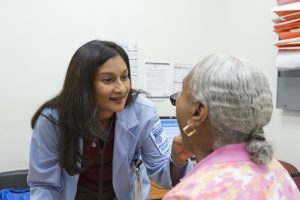
PA Kanumury is steadfast. For most of her career, she’s practiced primary care, specializing in internal medicine. Along the way, she’s had a variety of opportunities to pursue other specialties, but for her, the draw of internal medicine was always the strongest.
“I really enjoy the investigatory aspect of clinical medicine; feeling like a detective,” she says. “Plus, I’ve become so attached to my patients and colleagues that leaving them would have been too difficult.”
Expanding access with PAs
Making matters even more challenging, her patient population continues to expand since the adoption and implementation of the Affordable Care Act. In 2013, more than half of the patients seen at CCHHS were uninsured. That portion has dropped significantly to approximately 32 percent today.
“Access to care is ultimately the cornerstone of improving outcomes, which is why we’re continually hiring more PAs and advanced practice nurses, as well as recruiting more primary care physicians,” PA Kanumury says. “I also meet frequently with physicians and departments across the health system to build more awareness of the critical roles PAs play, including their abilities to run their own clinics, order labs and see patients independently.”
The novelty of working as a PA and promoting the profession hasn’t worn off for her, even after 20 years of serving others. Beyond the joy she gets from helping each of her patients, she feels a great deal of satisfaction knowing her work and that of her colleagues is having an impact on families and the community at large.
“It’s the best feeling when one of my patients stops by just to introduce me to another member of their family,” she explains. “Or sometimes, they’ll greet me with a hug, or tell me they’re feeling better simply from the words we exchanged during our visit.”
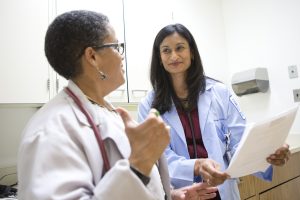 PA Kanumury is a mother of two, and every day she asks her kids to do three things: have fun in school, learn something new and find a way to help someone else.
PA Kanumury is a mother of two, and every day she asks her kids to do three things: have fun in school, learn something new and find a way to help someone else.
“I feel like those same three things are the main reasons why a career as a PA is so rewarding,” she says. “Each day, I learn something new, I’m helping people improve their health and I’m able to take on new challenges that could open even more opportunities in our profession.”
Thank you for reading AAPA’s News Central
You have 2 articles left this month. Create a free account to read more stories, or become a member for more access to exclusive benefits! Already have an account? Log in.
